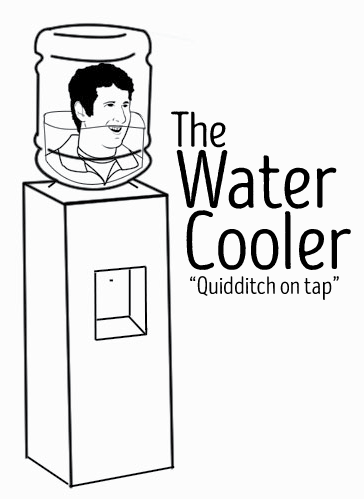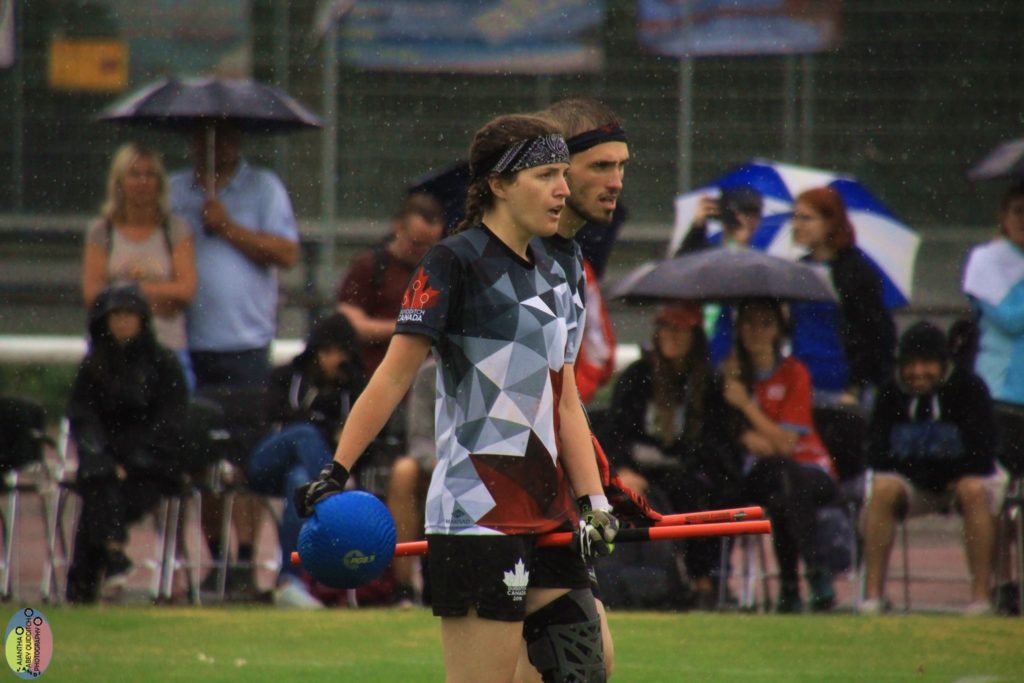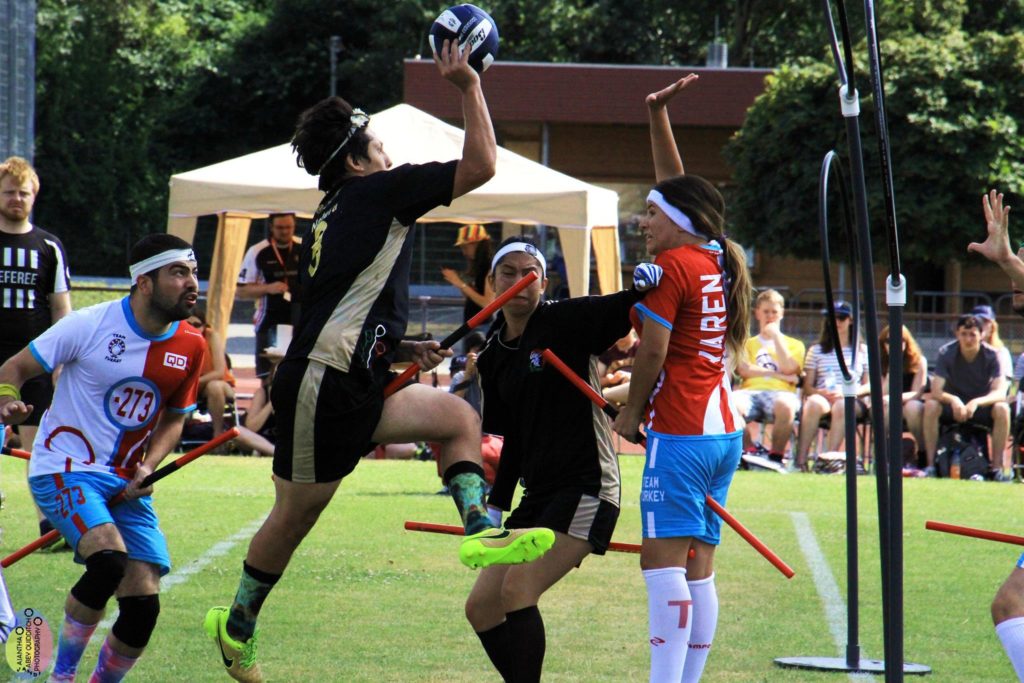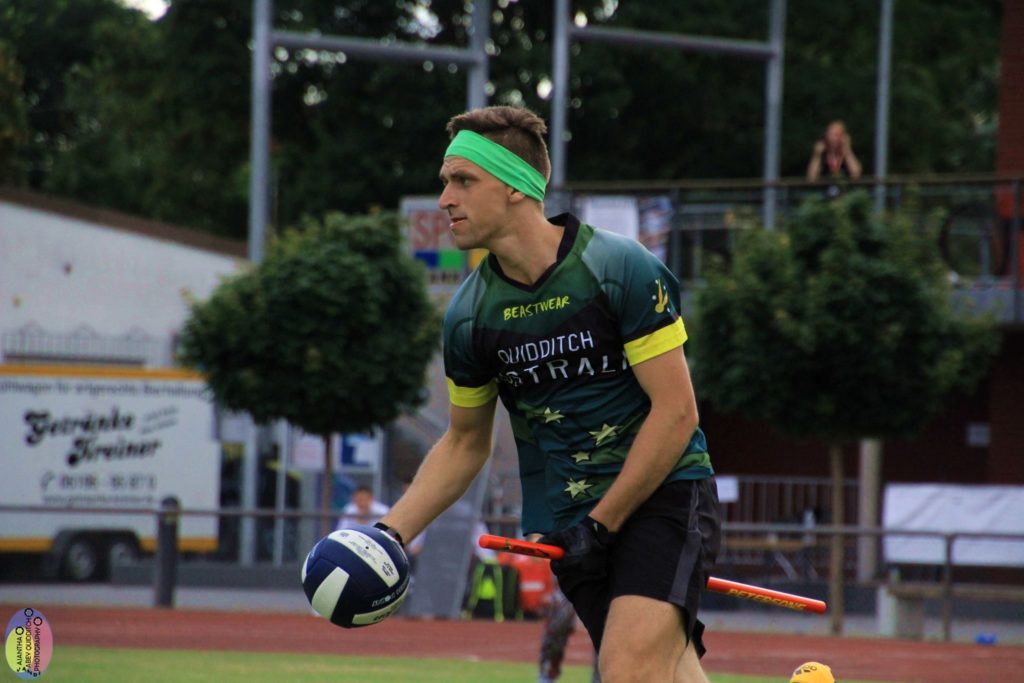Antwerp QC, Much of Belgian Core, Leaves Competitive Quidditch

Credit: Madison Seale, Nick May, Abbi Pittman
Editor’s Note: This article was written prior to the Brazil vs. South Korea exhibition match.
World Cup kicked off on Thursday with a series of exhibition matches that pitted national teams from different continents against each other. The day began with Canada taking on the United Kingdom. Next we saw Mexico against Turkey and the hosts Germany versus Australia.
While the exhibition matches themselves had no stakes, they still help us begin to write the story of this tournament. With the quidditch community only getting intercontinental quidditch once every two years, you can bet we are going to milk it for everything it’s worth. So here are some takeaways from World Cup 2016 thus far.
The Stream We Deserve
The livestream of today’s matches, even with the technical difficulties that robbed us of the match between Canada and the United Kingdom, was a revolution from past years. The picture was clear and smooth; the camera work was consistent and effective; and the commentary provided by Willow Rosenberg was informative and professional.
The key will be whether this quality can be maintained all weekend. I only had a chance to watch the recordings, so we can only hope the live broadcast is just as smooth. Even if it’s not, we should all be excited about how far we’ve come in the last two years, when Global Games 2014 had no livestream and the film disappeared for months before finally reappearing.
Don’t Tell the Daily Star
It may not be soccer, but the all-too-familiar feeling of a squad from the British Isles failing to live up to expectations is threatening to rear its ugly head in quidditch. The United Kingdom was understandably overmatched at the inaugural Global Games on their home soil four years ago. But after a fourth place finish in Burnaby in 2014, the creation of standing national team, and the benefit of annual international play, the United Kingdom entered Frankfurt this year with a realistic goal of finally making their way onto the podium. And while their 90*-50 loss to Canada on Thursday has no actual bearing on their ability to achieve that goal, it’s undoubtedly a setback for a team that has spent much of the last two years coming out just barely on the wrong side of history.
There is no shame in losing an exhibition match to a Canadian team that is firmly amongst the five teams with realistic medal aspirations, but there are some worrisome signs. Only managing 50 quaffle points shows a difficulty in breaking down the opposing defense. While Canada’s physicality is impressive, it pales in comparison to that brought by the likes of Team USA and Team Australia. Another snitch-range loss to Canada stings as well, as their last one came in the bronze medal game in 2014. A snitch grab also cost the United Kingdom the gold medal at the inaugural European Games, where they fell to France. While the sample size is an incredibly small 1-2 all-time in SWIM situations, the United Kingdom knows it will need at least one snitch grab to get on the podium. Another snitch-range loss, even in an unofficial match, will stay with them entering the weekend.

Credit: Ajantha Abey Quidditch Photography
That said, the United Kingdom at least escaped the match with only a mental loss, which is more than Canada can say. A collarbone injury will keep beater Erin McCrady out for the rest of the weekend, breaking up a pairing with Martin Chiasson that may have been one of the most intimidating at the tournament. While the Canadians can still rely on their physicality to keep things close, as they did in this match, their offense isn’t nearly cohesive enough to put up many points without a strong performance from their beaters. McCrady’s injury will make it all that much harder.
Lost in Officiating
We always knew what we are going to get with the refereeing at this tournament. The sport has no true international standard for the position, there was not nearly enough compensation to peak the interest of some of the top officials from the United States, and the sport is played at so many different levels across the world that it was always going to result in some referees seeing the sport at a quicker pace or with more physicality than they had before.
Just within the opening minutes of the two filmed exhibition matches, you can see the concerns manifest and how they will plague the rest of the weekend. In each, a player receives a card for physicality, and Rosenberg as the commentator has no idea what the specifics of the penalty were. And I don’t blame Rosenberg–outside of the plays being physical, it’s hard to really name a violation. Despite that, both times, the referee reaches to their pocket and brandishes a card.
If this keeps up for the remainder of the tournament, it is a severe disadvantage for the more physical squads. The path to a Team USA loss–if there even is one–most definitely includes a questionable straight red card, and the standards of physicality exhibited so far leave the door open for one.

Credit: Ajantha Abey Quidditch Photography
The Kids in America
The match between Mexico and Turkey had two clear top performers: the Turkish keeper–who needs to stop jumping into tackles before he seriously hurts himself–and Mexico’s Beto Natera –a role player throughout his career in USQ who looked more composed with the ball and more talented in a tackle than anyone else on the pitch. Largely on the back of Natera’s play, the Mexican team opened up a sizable lead before giving it all away with the snitch on pitch and an impressive come-from-behind victory for Turkey.
Despite the final result–and I’ve never been one to dwell on quaffle play during snitch on pitch as a true measure of performance–watching Natera play leaves you wondering just how much of a leg-up American quidditch still has on the rest of the world. If a run-of-the-mill player during the USQ and MLQ season can take over a match between two of the better teams outside of the top tier, then how far can Kyle Jeon–as one of the USA’s top beaters–take a South Korean squad* that, by all other metrics, should just be happy to be there.
Beyond the battle for the medal podium, the impact of individual Americans on non-American national teams will remain one of the most interesting and telling stories of the weekend. And it’s next chapter that will get written sooner rather than later, with Jeon’s South Korea kicking off its weekend with an exhibition against Brazil–which includes American Phill Cain–on Friday.
Silver Linings
The performance of the day undoubtedly goes to Australia, who took care of business with a 180*-10 win against an outmatched Germany squad. And while the result itself shouldn’t do too much to bolster the Australian hype train, the way they went about that victory absolutely should.

Credit: Ajantha Abey Quidditch Photography
The Australians dominated in a textbook fashion. They made all of their tackles, leaving it difficult for Germany to even effectively cross midfield. Their beaters were active, aggressive and always ready to run with a fast break–a welcome relief after watching a match between Turkey and Mexico that featured a lot of passive, conservative beater play. Australia’s passing was on point, and the team seemed happy to be throwing around a Baden, even if there were still a few too many one-handed catches for my liking.
Coming off a silver medal finish in Burnaby, the Australians are also one of the favorites in 2016. But with physicality that matches up with the best the world has to offer and rapidly improving beater strategy, the Drop Bears look like not just the clear favorite for the silver, but also the first team to potentially take a step toward unseating Team USA. To the rest of the top tier, hungry for that silver, Australia would be wise to steal a line from the USQ Southwest that they’ve begun to emulate so effectively: Come and Take It.
Archives by Month:
- April 2025
- May 2023
- April 2023
- April 2022
- January 2021
- October 2020
- September 2020
- July 2020
- May 2020
- April 2020
- March 2020
- February 2020
- January 2020
- December 2019
- November 2019
- October 2019
- August 2019
- April 2019
- March 2019
- February 2019
- January 2019
- November 2018
- October 2018
- September 2018
- August 2018
- July 2018
- June 2018
- April 2018
- March 2018
- February 2018
- January 2018
- November 2017
- October 2017
- July 2017
- June 2017
- May 2017
- April 2017
- March 2017
- February 2017
- January 2017
- December 2016
- November 2016
- October 2016
- September 2016
- August 2016
- July 2016
- June 2016
- May 2016
- April 2016
- March 2016
- February 2016
- January 2016
- December 2015
- November 2015
- October 2015
- September 2015
- August 2015
- July 2015
- June 2015
- May 2015
- April 2015
- March 2015
- February 2015
- January 2015
- December 2014
- November 2014
- October 2014
- September 2014
- August 2014
- July 2014
- May 2014
- April 2014
- March 2014
- February 2014
- January 2014
- November 2013
- October 2013
- September 2013
- August 2013
- July 2013
- June 2013
- May 2013
- April 2013
- March 2013
- February 2013
- January 2013
- December 2012
- November 2012
- October 2012
Archives by Subject:
- Categories
- Awards
- College/Community Split
- Column
- Community Teams
- Countdown to Columbia
- DIY
- Drills
- Elo Rankings
- Fantasy Fantasy Tournaments
- Game & Tournament Reports
- General
- History Of
- International
- IQA World Cup
- Major League Quidditch
- March Madness
- Matches of the Decade
- Monday Water Cooler
- News
- Positional Strategy
- Press Release
- Profiles
- Quidditch Australia
- Rankings Wrap-Up
- Referees
- Rock Hill Roll Call
- Rules and Policy
- Statistic
- Strategy
- Team Management
- Team USA
- The Pitch
- The Quidditch Lens
- Top 10 College
- Top 10 Community
- Top 20
- Uncategorized
- US Quarantine Cup
- US Quidditch Cup
